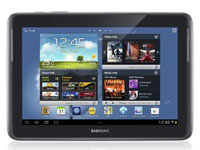
Top stories






More news


ESG & Sustainability
Redisa calls on govt to fix South Africa’s “broken” waste management system


























In fact, the continent is known for many of its innovations when it comes to mobile applications in these areas. One only needs to think of the mobile money solution M-Pesa and the impact it has had on banking to the unbanked, not only in Africa but globally. Africa, with its limited fixed-line connectivity and broadband limitations has learnt to use mobile to drive development to great effect.
Recent years have seen the landing of various undersea cables on the continent, bringing with them a virtually infinite amount of bandwidth and potential for further innovation in a largely untapped market. This is exciting for Africans and international investors alike. The development of mobile applications and the potential to harness the computing power of tablets for accessing information, transferring money, engaging with family and friends, and job creation cannot be overestimated.
However to be really effective, a tablet needs to combine a number of elements that ensure it meets the requirements of a number of sectors. Battery life and performance are two components. A lightweight form factor and crystal-clear display are others. Yet, the available applications and the ability to multitask between them are vital to the user experience. Those manufacturers that are able to provide individuals with an experience tailored to their unique needs will be able to set themselves apart from their competitors. People want value-added content and hardware features that let them benefit from tele-medicine, mobile education, and so on.
There are many examples of how schools in rural communities are using tablets to help with literacy, provide access to the Internet, and equip learners with the skills needed to make them employable for companies once they are ready to enter the job market. Africa, with its unreliable power supply, has an impact on how computer laboratories in schools and communities operate. Desktops are not viable solutions. Solar-powered netbooks or tablets provide an ideal mix of performance and battery life with a great number of them being affordable enough for learning institutions to purchase.
The manufacturers who understand the needs of the African market and how mobile technologies are used to empower people from all walks of life will be the ones who are the most successful. They need to understand the value of local partnerships and working with institutions to develop innovative solutions that harness the potential of the continent. The next few years will see significant changes in mobility in Africa and will be exciting ones to be involved in as technology becomes available that can leverage all these opportunities more effectively than before.